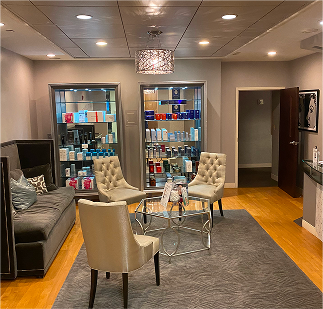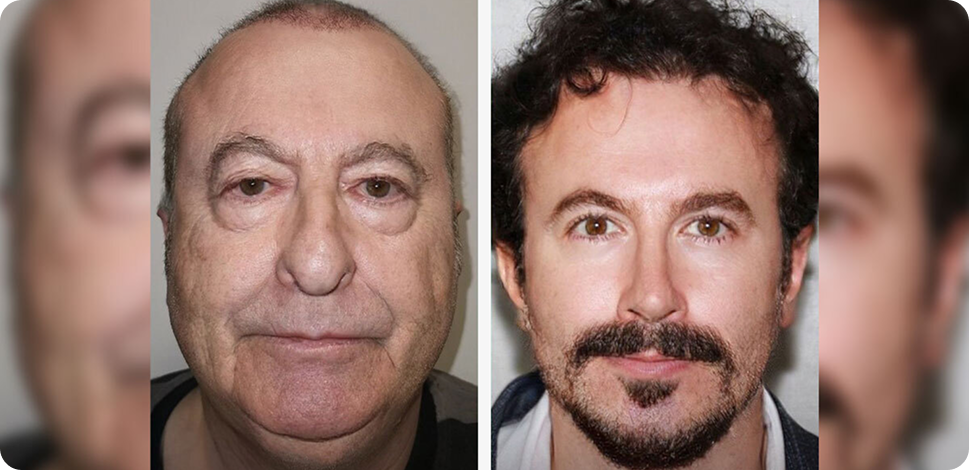Welcome to RENU where we customize our signature services and transformational products to meet your unique needs for a truly unforgettable experience. Both men and women trust RENU to provide an individualized comprehensive aesthetic services administered by certified medical professionals in a warm and welcoming, soothing spa setting.























At Renu by Dr. Schonfeld, Dr. Schoenfeld brings innovative computer imaging to his patient evaluations. The technique provides an important starting point to the consultation process. Using computer imaging, Dr. Schoenfeld is able to bring his patients more satisfying and long-lasting results.


To prolong a youthful appearance and display a more energetic look, Renu Artful Medicine offers patients an array of surgical and non-surgical eye rejuvenation procedures. One of the most transformative surgeries is blepharoplasty, commonly called eyelid lift surgery, performed by Dr. Philip Schoenfeld of the Washington, D.C. suburb, Chevy Chase, MD.


Posted onTrustindex verifies that the original source of the review is Google. Greatly improved my quality of life. Dr. Schoenfeld was very knowledgeable and answered all my questions. I would trust him to perform this surgery again.Posted onTrustindex verifies that the original source of the review is Google. Dr. Schoenfeld is amazing. I’ve seen him for both cosmetic and sinus related reasons and he is truly the best - I can breathe better than I ever have. so glad I found him! thank you, Dr. Schoenfeld.Posted onTrustindex verifies that the original source of the review is Google. Upon meeting Dr. Schoenfeld, I immediately knew I was in good hands. He was incredibly informative, respectful, and receptive to my requests and concerns. I felt entirely prepared for my operation and healing process. He and his team frequently checked in pre-op and post-op to ensure my comfort, safety, and satisfaction. Almost 2 months post-op, my health and confidence has significantly improved. My recovery was incredibly smooth and rapid to the extent that I feel as though I never even had surgery. He absolutely exceeded my expectations without any surprises and executed on every promise he made. I am so grateful for Dr. Schoenfeld and strongly recommend him and his team!Posted onTrustindex verifies that the original source of the review is Google. Terrific experience - wonderful facial by a lovely and talented anesthetist.Posted onTrustindex verifies that the original source of the review is Google. I haven't left a review for anybody but I am doing this for Dr. Philip Schoenfeld to express my appreciation for the exceptional care I received after fracturing my nose during martial arts training. The injury was quite severe, leaving my nose crooked and significantly impacting my breathing. Dr. Schoenfeld assessed my situation promptly and recommended surgery to restore my normal breathing. Getting an appointment within the same week was also incredibly helpful. The surgery was a complete success, and I am so pleased with how my nose looks. What has surprised me most is the significant improvement in my breathing - I can breathe more easily now than I ever have before! Thank you so much for your astonishing work.Posted onTrustindex verifies that the original source of the review is Google. Dr. Shoenfeld is fabulous! Very detailed and listens to what the patient wants/needs. I’d give more than 5 stars if I had the option!Posted onTrustindex verifies that the original source of the review is Google. 2025 - I’ve been going to Dr. Schoenfeld since 2023, and I truly can’t imagine trusting anyone else with my face. I recently came back for cheek filler, lip filler, and a little liquid rhinoplasty to refine the tip of my nose —and I’m completely obsessed with the results. As someone who’s normally terrified of needles, Dr. Schoenfeld makes me feel so comfortable and at ease every single time. His technique is gentle, his eye for detail is unmatched, and he really listens to what you want. His entire office staff and front desk team are incredibly kind and accommodating, which makes the whole experience even better. I can’t recommend him enough! 2024 - Update after rhinoplasty - Saw Dr. Schoenfeld for lip filler & cheek filler. I am absolutely obsessed with the results and can see the difference immediately after. His front desk team is so kind and polite - they made scheduling a super easy and convenient process again. Filler was practically painless. 10/10 experience. I will definitely be coming back!! 2023 - Dr. Schoenfeld is incredible. I had an amazing experience and highly recommend him for all rhinoplasty patients. I went to him for a septoplasty and ethnic rhinoplasty. The procedure itself was painless and downtime was minimal. His team was able to fit me in within weeks for the procedure and follow-up appointments— super easy scheduling and consultation process. I definitely saw a noticeable difference after the procedure. The results are fantastic and everything I could wish for!!! Dr. Schoenfeld addressed all of my concerns and made me feel super confident and supported throughout the entire process— terrific bedside manner.Posted onTrustindex verifies that the original source of the review is Google. I was recommended to Dr. Schoenfeld by an EMT doctor after a second broken nose. I needed a septoplasty/ rhinoplasty. I googled a few other surgeons after, but after having met Dr. Schoenfeld, I knew I was in the right hands — physically and emotionally! His work speaks volumes, but the concern and understanding he brings to his patients’ desired outcome is quite reassuring. After my procedure, I’ve had a few concerns after accidental head bumps (3 yr old!), and his office staff was wonderful and helpful to squeeze me in asap (thanks Ana! (Sp?)). I wholeheartedly would advise considering Dr. Schoenfeld for any ENT needs. Wonderful person, incredible surgeon, amazing staff.Posted onTrustindex verifies that the original source of the review is Google. I cannot rave about Dr. Schoenfeld enough. I had a rhinoplasty and septoplasty done 12 years ago with him and it has stood the test of time. Matter of fact, I just saw him today and he even mentioned how amazing my results were after all of this time. Most people don't even know I've had any work done and I believe that is the true testament to Dr. Schoenfeld's artistry. He listens to your concerns, makes his expert recommendations, and follows through with amazing work. He also doesn't push anything on you and will actually tell you if something needs to be done or not. I highly recommend Dr. Schoenfeld and hope that he can bring an improvement to your life as he has done mine.Verified by TrustindexTrustindex verified badge is the Universal Symbol of Trust. Only the greatest companies can get the verified badge who has a review score above 4.5, based on customer reviews over the past 12 months. Read more
Robert Finfer, president of a national finance and insurance company based in Bethesda, Md., remembers the precise moment he decided to have his eyes done. He was driving his BMW on a beautiful spring morning in 2001, top down, wind in his hair, and happened to glance at himself in the rearview mirror. That was it. “You feel great,” he explains, but “no matter what you do, you look tired.”Bags under the eyes will do that. So Finfer, now 40, went in for an eye job. Men accounted for 1.2 million cosmetic procedures (both surgical and minimally invasive) in 2004, according to the American Society of Plastic Surgeons (ASPS). One motivator: a belief that looking younger at work provides an edge. “They don’t like to see themselves getting older,” says Dr. Philip Schoenfeld, a Maryland facial plastic surgeon. Of course, vanity plays a part too. “My family thought that I was crazy,” admits Finfer. “I was young. [The bags were] bothersome to me. I wanted to look refreshed.”


The top five cosmetic surgical procedures for men (in order of popularity, according to the American Society for Aesthetic Plastic Surgery) and the average costs per patient are:
These procedures account for about 80% of cosmetic surgeries requested by men in the U.S. One key factor to consider: Health insurance rarely picks up the bill.
Gaining in popularity are some nonsurgical treatments. Botox (average cost per person: $477) weakens the fine muscles that are responsible for frowns and wrinkles; laser hair removal ($456) permanently removes chest, leg and back hair; chemical peels ($640) exfoliate top layers of skin; and microdermabrasions ($217) reduce skin-surface irregularities.
"*" indicates required fields
Computers may offer an accurate visual simulation of how you’ll look after surgery. Yet many patients have exaggerated expectations for what cosmetic surgeons can accomplish. A facelift or an eye job may not, in reality, make you beautiful. And it’s not necessarily going to change what the world thinks of you. Some patients experience a deep sense of anticlimax when they see the results. Some get angry and even sue their doctors.
What is realistic? Former ASPS President Dr. James Wells, who practices in Long Beach, Calif., says, “There’s no such thing as a perfect nose or a perfect face. You want to get something that looks normal, not obvious.”
Understand, also, that cosmetic surgery hurts. Most work done on your face produces stark bruises and swelling. Usually, you will not be in a hospital. Instead, most procedures are performed on an outpatient basis, either in a doctor’s office or an ambulatory surgical center. (Make sure that the facility is accredited.)
Minimize surprises by asking the surgeon: How long is the procedure? What anesthesia is required? What is the recovery period? Also to consider in facial surgery: Men’s facial skin is thicker and richer in blood supply than women’s, which means a risk of heavier bleeding.Every surgery, however, carries certain risks. Scalpels can slip. Incisions can get infected. There can be problems with anesthesia. That said, when surgery is performed in an appropriate setting by a well-trained surgeon on a patient who fits the description of a “good candidate,” it can be very safe.
A good candidate is a mature, emotionally stable, healthy indivi-dual; ideally he or she is a non-smoker and free of other serious conditions (like heart disease, diabetes or very high blood pressure).
Even if you believe you’re a candidate, don’t rush. Sure, you hate your nose, but it has served you well for a long time. Taking a few weeks to think things through will help. As Dr. Wells says: This is not “I need surgery.” This is “I want surgery.”


"*" indicates required fields